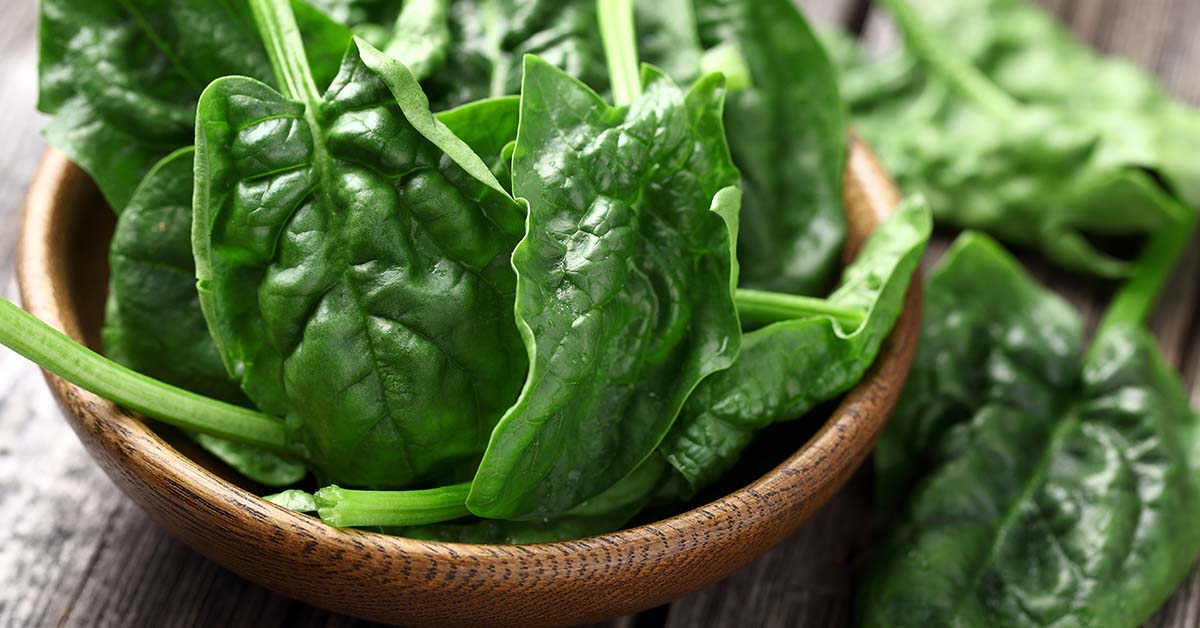Spinach, hailed as a nutrient powerhouse, does have its flaws. Despite its numerous health benefits, including calcium and potassium content, it can sometimes lead to an uncomfortable feeling, commonly referred to as “spinach mouth”.1 If you don’t know what that is, it’s that strange chalky feeling that seems to coat your mouth after having spinach. Let’s take a look at the science behind this sensation and explore ways to minimize its effects.
What Causes Spinach Mouth?
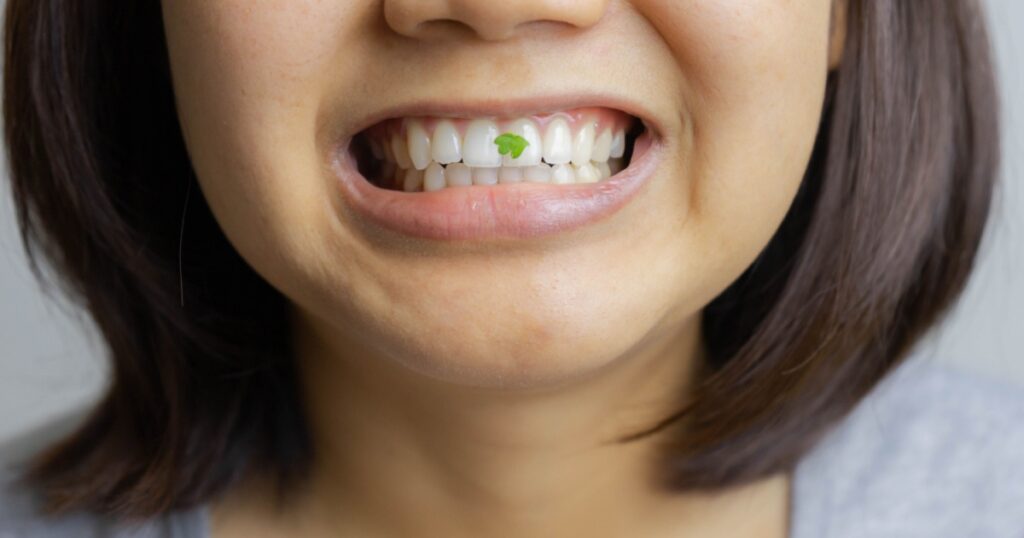
The one to blame for the filmy mouth feeling is oxalic acid, a compound unsurprisingly abundant in spinach. As you chew your spinach, it releases oxalic acid, which then combines with the calcium present in your saliva to form calcium oxalate crystals. These crystals create the gritty, unpleasant sensation we know and love.
Read More: Standard American Diet: Proof That the SAD Diet Is Killing America
The Impact of Oxalic Acid
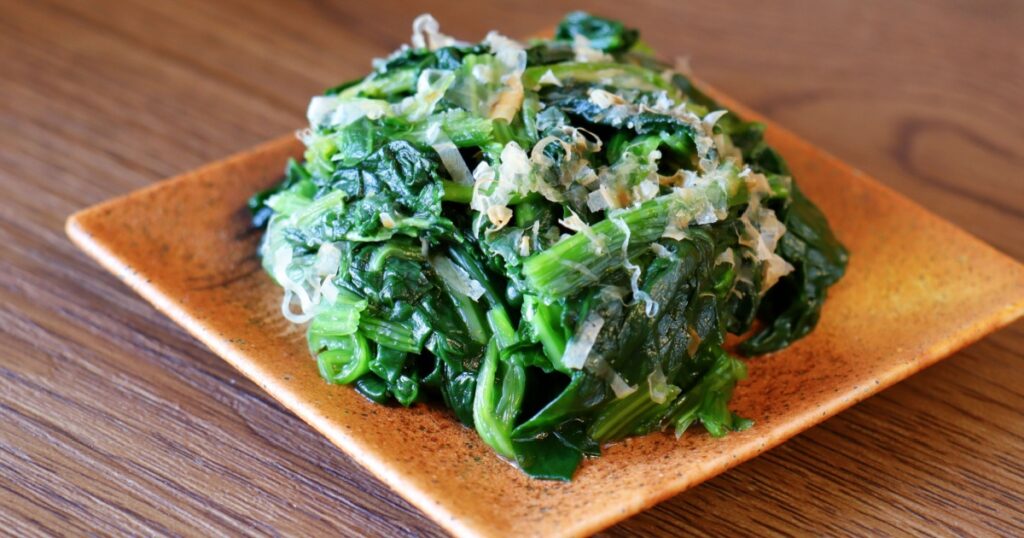
Spinach isn’t the sole carrier of oxalic acid; but because it contains notably high levels compared to other foods, we feel it much more when we eat it. Oxalic acid is actually a defense mechanism for the plant against predators, aiming to deter consistent ingestion through spinach mouth action. Although oxalic acid isn’t usually harmful, those who are prone to kidney stones may need to watch their spinach intake due to the potential formation of calcium oxalate crystals associated with kidney stone development.2
Preventing Spinach Mouth
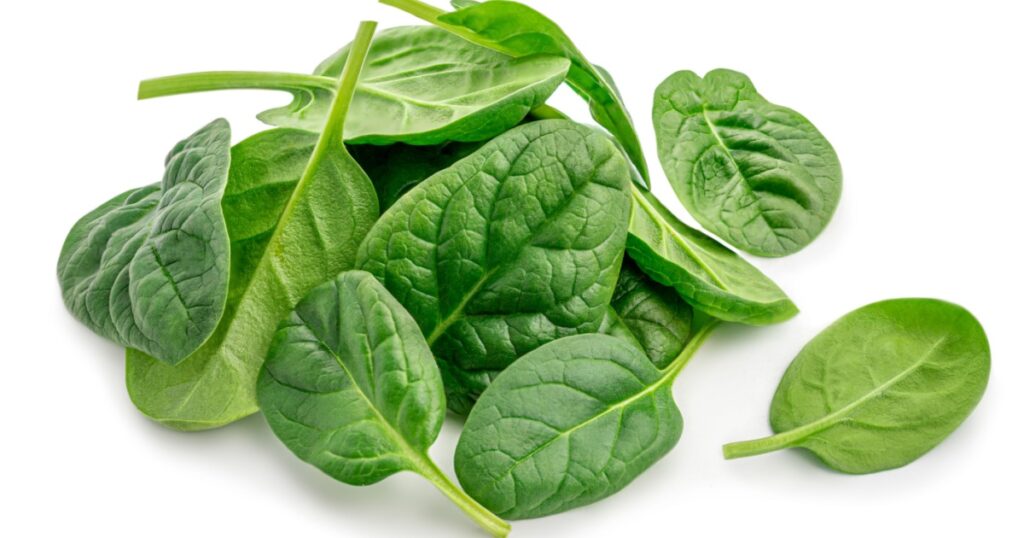
Various methods have been tested to assess their effectiveness in mitigating spinach mouth:
Steaming
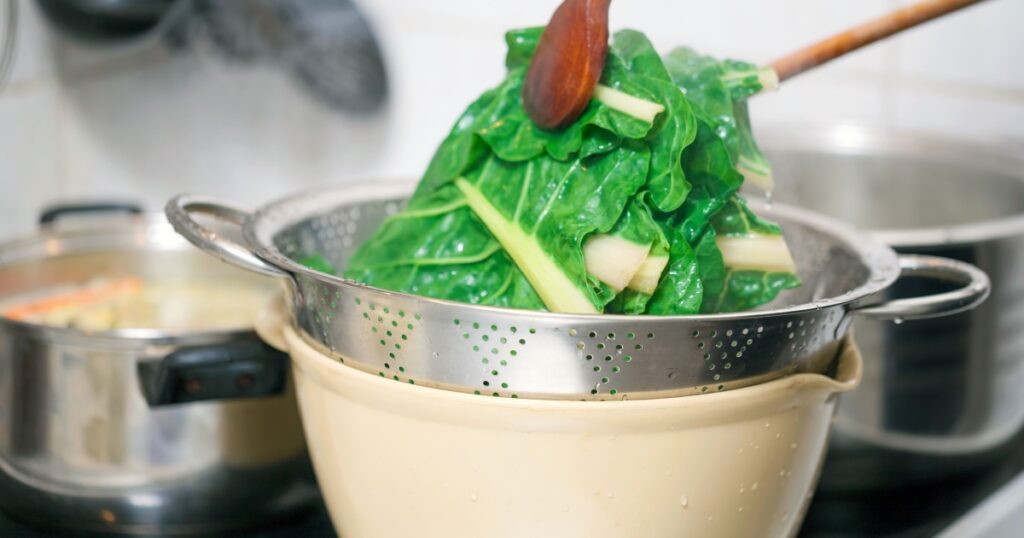
Steaming has proved to be a successful strategy to reduce the sensation of spinach mouth, with the crystals mainly only being felt on the back teeth. This method allows spinach’s nutrients to still be retained (as opposed to boiling) while minimizing oxalic acid content. Simply steam spinach over medium heat with a lid on the pan (keeps the nutrients in) for optimal results.
Lemon Juice

While lemon juice can effectively dissolve oxalic acid, you need to be careful in your measurements to avoid an overpowering tart flavor. Incorporating lemon juice into cooking or as a dressing for raw spinach can help reduce the feeling of spinach mouth. Start with small amounts and adjust according to taste preference.3 Lemon juice is also a great base for salad dressings, so you may be able to minimize the filmy feelings while also creating a great dressing profile for your salads.
Read More: 10 Unbelievable And Amazing Reasons Why You Should Start Eating Celery In The Evening
Low-Oxalic Acid
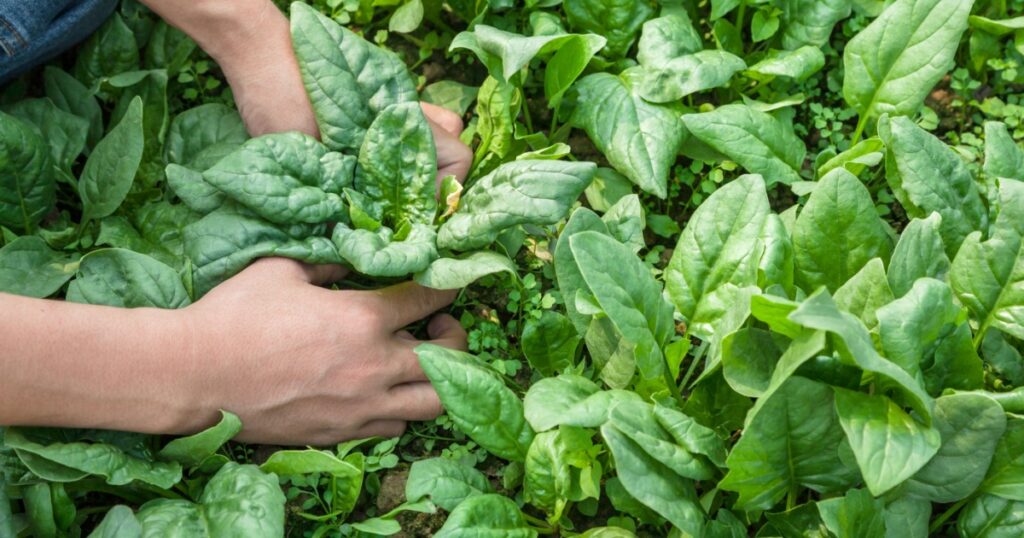
Researchers are trying to breed spinach varieties that have lower oxalic acid levels to help cater to individuals sensitive to spinach mouth. By identifying genetic markers associated with lower oxalic acid content, we will be able to develop spinach varieties that offer all the nutritional benefits of spinach now without the nuisance and discomfort currently dealt with.
Last Words on Spinach Mouth
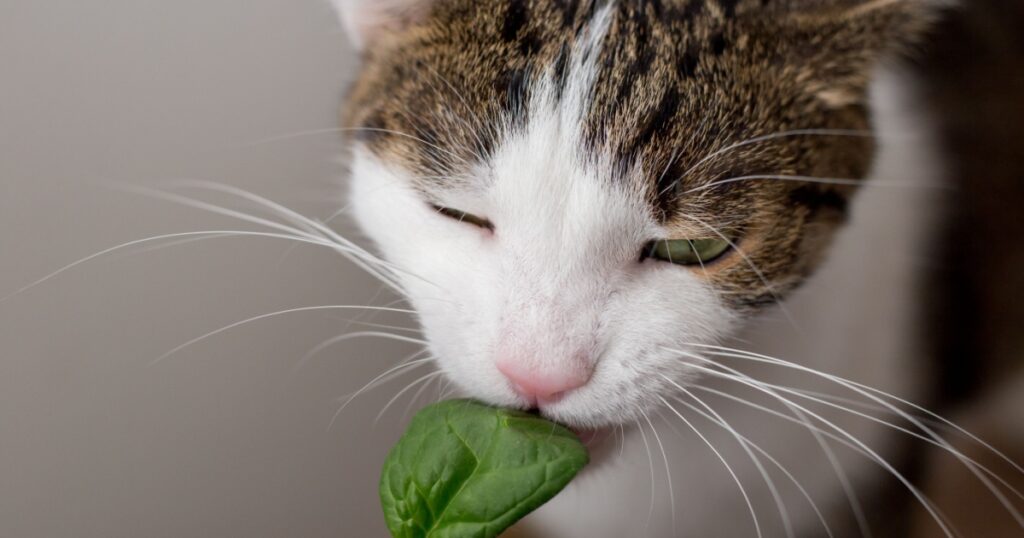
Spinach truly is a powerhouse when it comes to its nutritional profile. However, the sensation of spinach mouth often overshadows its benefits, causing an uncomfortable sensation in the mouth. While the presence of oxalic acid and calcium oxalate crystals is natural, various methods and additives can help minimize this sensation. As research continues to uncover ways to mitigate the feeling, individuals can still enjoy this leafy green in their diet, reaping its numerous health benefits.
Read More: 7 Benefits of Cabbage Juice: Aids with Inflammation, Gut Health, Ulcers, and More
Sources
- “The Science Behind The ‘Spinach Mouth’ Phenomenon.” MSN. Gabby Romero. March 2024.
- “Why Do Your Teeth Feel Weird After Eating Spinach?” Live Science. Laura Geggel. September 23, 2016
- “How to Cook Spinach So It Doesn’t Leave a Weird Feeling on Your Teeth.” Eating Well
